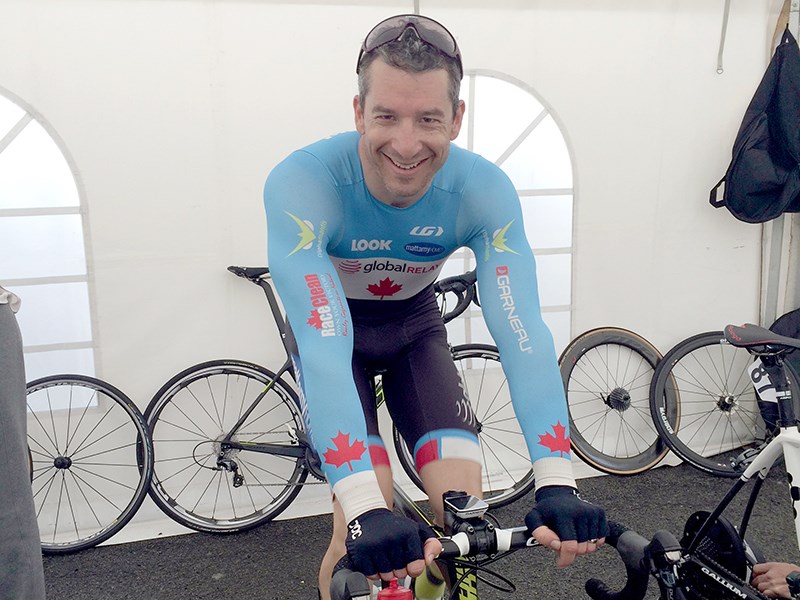As a para-cycling world champion, Powell River’s Tristen Chernove has one thing in mind at the Rio 2016 Paralympic Games.
“I’m going for a world record in both of my track events,” said Chernove. “That’s my bar; I want to break the world record.”
Chernove’s indoor track events include kilo, a time-trial sprint over 1,000 metres, and individual pursuit, a chase race between two competitors. He holds the world title in both races after wins at the 2016 Union Cycliste Internationale Para-cycling Track World Championships in Montichiari, Italy, five months ago.
Chernove also won road race and time trial gold medals at a world cup para-cycling event in Belgium earlier this year.
“At the track world championships, I was 2-100ths of a second off the world record in kilo and three seconds off the world record in the pursuit,” he said.
The records were set at Aguascalientes, Mexico, 1880 metres above sea level, which makes race conditions faster. Chernove still thinks he can beat them in Rio on a sea-level track. He will also compete outdoors in time trial and road races.
Diagnosed with Charcot-Marie-Tooth disease in 2009, Chernove took up cycling to make his legs as strong as possible in order to slow the effects of the disease, a rare and hereditary muscular atrophy disorder that progresses with loss of muscle tissue and touch sensation, similar to muscular dystrophy.
The degenerative genetic disorder was passed to him from his mother, Malerie Meeker.
“My immediate reaction was, ‘Of course,’ because it is a hereditary disease that runs in the family,” said Meeker, who lives in Lund. “I carried the gene but didn’t show symptoms. Anything we saw in Tristen we kept saying, ‘No, he can’t have it because I don’t have the gene; I don’t have symptoms.’ I felt deeply sad and that it was my fault, but of course that’s a human reaction and I got over it.”
Chernove said his body has held up to the training and competitive stress elite athletes experience.
“I’m delighted to say I feel great and have been pretty much injury-free,” he said. “I participated in a lot of able-bodied, elite-level racing as well. I love the feeling and pain of training. The risk is overtraining.”
Chernove has gone 18 months without a break or recovery week, and although overtraining can happen he said he has “a lot of people keeping an eye on that to make sure I won’t get to that zone.”
Chernove, who entered the velodrome and took to the racetrack for the first time in international competition at this year’s world championships, describes 2016 as a remarkable year. “Two years ago it wasn’t on the radar, but I’m thrilled,” he said.
Thrilled but not astonished, because he has competed on the international level before in paddle sport, earning two world gold medals, one silver and two bronze. Chernove said he came into cycling with a lifetime of fitness and could “ride fast from the first go.”
He has been focused on his plan, which is a path that does not allow for options, said Chernove. He speaks in absolutes but reconciles his pursuit of world records and gold medals with being satisfied by executing the best he can as a cyclist.
“My plan is to have the absolute best performance I can give right now on the day,” he said. “If that results in a win, wonderful, if it doesn’t, I will still feel wonderful and be proud of my execution, as long as it is the best, the absolute best, I can deliver.”
Chernove left for Rio de Janeiro on Tuesday, August 30. His wife and two young daughters will not travel to watch him perform, but his mother will leave on Monday, September 5.
“It’s important because of what it means for my son,” said Meeker. “He’s working so hard in the face of this disability and doing so well and is such an inspiration to others about what is possible and doable.”



